Israeli Man Says He Was Target Of Multiple Iran Assassination Attempts
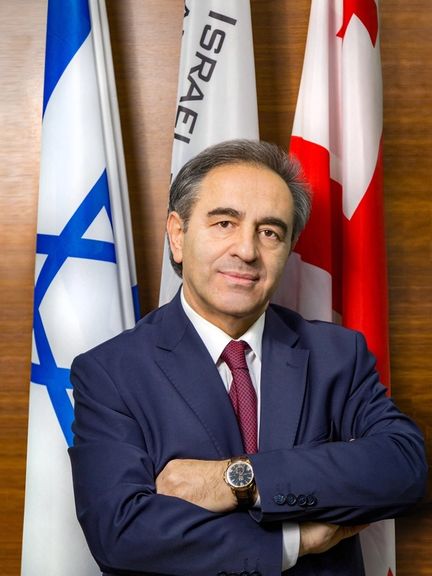
Itzik Moshe, a prominent advocate for improved ties between Israel and Georgia, has revealed that he survived three assassination attempts in the past year.

Itzik Moshe, a prominent advocate for improved ties between Israel and Georgia, has revealed that he survived three assassination attempts in the past year.
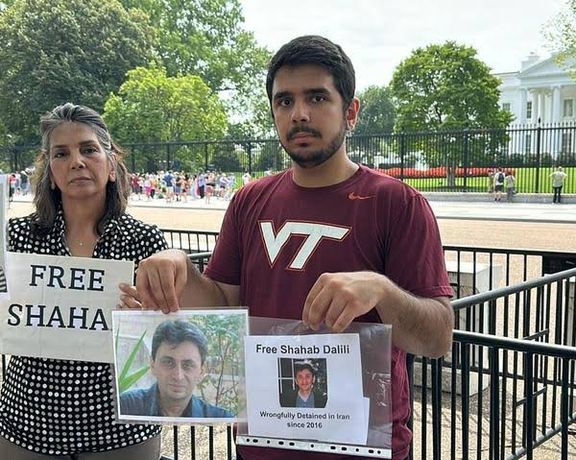
The family of a detained US permanent resident left out of a hostage release deal between Iran and the United States demand fair treatment.
On the fifth day of a sit-in protest that has moved from outside the White House to the US State Department's premises, the family of Shahab Dalili, is calling for his release as part of the Tehran-Washington agreement.
On Monday, Deputy Spokesperson Vedant Patel of the US State Department addressed the situation during a press conference, casting doubt on whether Dalili's case falls under the category of "wrongfully detained.”
Dalili, a former captain of Iran Shipping Company and a US resident, was arrested during a trip to Tehran in 2016 for his father's funeral, after which he was apprehended by Iranian security forces.
Patel said, “and what I would say in the case of Mr. Dalili is that that case has not yet been determined wrongfully detained. We obviously don’t discuss the specific details of individual cases who have not been deemed wrongfully detained.”
This contradicts previous remarks by US Secretary of State Anthony Blinken, who said on August 19ththat there were no other American citizens imprisoned in Iran apart from the five known detainees.
Shahab Dalili's son, Darin Dalili, expressed disappointment and disagreement with the Deputy Spokesperson's statement, deeming it "incorrect." In response to the family's concerns, Patel clarified that the US was actively investigating Dalili's case and had engaged in discussions with the family regarding his situation.
Undeterred by the conflicting messages, the family continue their sit-in outside the US State Department.
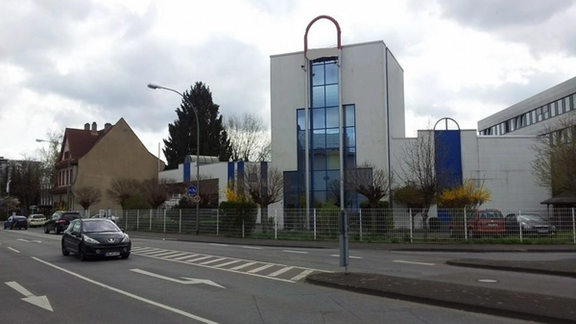
German Iranians are demanding the state government of Hesse shut down the pro-Iran regime Center for Islamic Culture in Frankfurt that honored Qasem Soleimani.
A Frankfurt Social Democrat Party politician Turgut Yüksel has shared information about the strong ties between the Center for Islamic Culture and Iran’s regime.
Iran International reviewed state of Hesse’s response to Yüksel’s “minor interpellation”—a formal written request by a member of the state parliament seeking concrete information about government conduct.
According to answers with respect to Yüksel’s request, the state’s ministry of interior and sport wrote, “The Center for Islamic Culture Frankfurt (ZIK) was influenced by the Islamic Center of Hamburg (IZH). The ZIK property was acquired by the IZH in 2012 and was still owned by the IZH in 2022. Until November 2020, the long-time head of the ZIK was also chairman of the Shiite umbrella organization ‘Islamic Community of Shiite Communities in Germany’ (IGS), which in turn sees the IZH as a reference organization for itself and its member associations.”
When asked by Yüksel “What options does the state government see for restricting the activities of the associations that support the Iranian regime,” state secretary, Stefan Sauer, for the interior ministry, wrote “should an examination show that the goals or activities of the associations run contrary to criminal law or against the constitutional order or international understanding, ban could be come into consideration.”
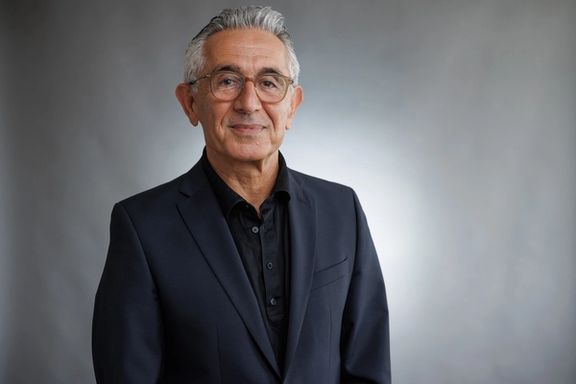
German governments in Hamburg and Hesse have showed great tolerance and leniency toward Iranian regime-controlled mosques and centers, according to critics.
The German daily paper Die Welt termed the Islamic Center of Hamburg “Iran’s long arm in Europe” and has reported it has “links to a terrorist organization, “including being controlled by Iran’s Supreme Leader Ali Khamenei.
The domestic intelligence agency for Hesse wrote, in 2021, “The extent to which the ZIK acted in accordance with Iranian state doctrine was shown, for example, by the fact that it -- like the IZH -- held a commemoration event in 2020 for Qasem Soleimani, the leader of the Iranian Revolutionary Guards who was killed by the American military."
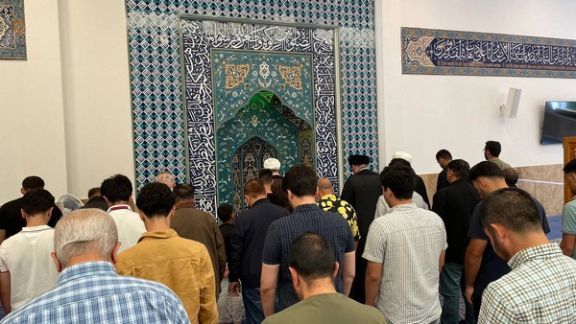
The intelligence report added, “Events with a positive connection to the Iranian regime were regularly held in the ZIK, especially on the anniversary of the death of Ayatollah Khomeini, the founder of the Islamic Republic of Iran."
The ZIK does not receive public funds, according to the Hesse government’s response.
Dr. Kazem Moussavi, a German-Iranian dissident who has campaigned for years against the ZIK, told Iran International, “The fact that the state of Hesse has not yet closed the ZIK is due to Germany’s policy of appeasement towards Iran. In 2018, federal president Frank-Walter Steinmeier received the former chairman of the IGS and the head of the Center for Islamic Culture in Frankfurt, Mahmoud Khalizadeh, at Bellevue Palace. This signaled the green light for the German-based institutions of the terror regime.”
Moussavi is the spokesman for the exiled Green Party of Iran in Germany.
Sheina Vojoudi, an Iranian refugee who lives in Germany, urged the state of Hesse to launch an intensive investigation of the ZIK. She told Iran International, “It almost impossible to consider an Islamic Center related to the Islamic Republic as non-political. The Islamic Republic mostly uses these centers as its source of money to lobby on a foreign soil like it does in the African countries recently.”
Vojoudi, who is an associate fellow for the Gold Institute for International Strategy, added “As an Iranian dissident deprived of my right to live in my own country, I would love to know every detail of the expenses related to all the Islamic Centers on German soil, which are funded by my country. Undoubtedly, this money needs to be spent for the Iranian children in Iran.”
Iran International press queries to the ZIK and to Marcus Gerngross, the spokesman for Hesse’s interior ministry, were not immediately returned.
Behrouz Asadi, the head of the Democratic Forum of Iranians in Mainz, sent Iran International a video of himself and Yüksel at a demonstration against a possible execution of Toomaj Salehi, a rapper opposed to the Islamic Republic, who has been incarcerated for his dissident activities.
Video footage from Asadi, a high-energy activist against the regime, showed protestors with pictures of Salehi and the political prisoner, Jamshid Sharmahd, who is a German citizen and was taken hostage by the clerical regime.
Asadi called for “release of all political prisoners in Iran” at one of the demonstrations and stressed the slogan “Women, Life, Freedom.”
Last week, Asadi participated at a protest in Frankfurt against the Islamic Republic following the shocking revelations that the German engineering giant Bosch sold 8,000 cameras to Iran that are used to conduct mass surveillance.
“If they sanctioned, how can you sell cameras to Iran regime?,” a demonstrator asked. “That is the most important question that people of Iran are asking.” The demonstrator showed a sign of European companies cutting deals with regimes that provide technology to repress and kill Iranians.
On X, formerly known as Twitter, there were social media posts calling for a boycott of Bosch.
When asked about whether Bosch violated its pledge to social responsibility, Dennis Christmann, a spokesman for Bosch, told Iran International “As a globally operating company, Bosch takes its social responsibility very seriously, and monitors international developments very closely. This is also the case in Iran. Respect for liberty and human rights is our most important priority. Diversity, openness, trust, and freedom of speech are core elements of our values-based corporate culture.”
Critics argue Bosch failed to do its due diligence about cutting a massive business deal with a totalitarian regime that has previously used tracking technology to imprison Iranian protesters and dissidents.
Bosch’s headquarters is in Stuttgart in the wealthy southwestern state of Baden-Württemberg. German politicians and officials in the state of Baden-Württemberg, from the governor Winfried Kretschmann to the allegedly antisemitic civil servant Michael Blume to the mayor of Freiburg, Martin Horn, go to great lengths to promote relations with Iran’s regime and ignore Iranian dissidents and grave human rights violations in Iran, according to critics.
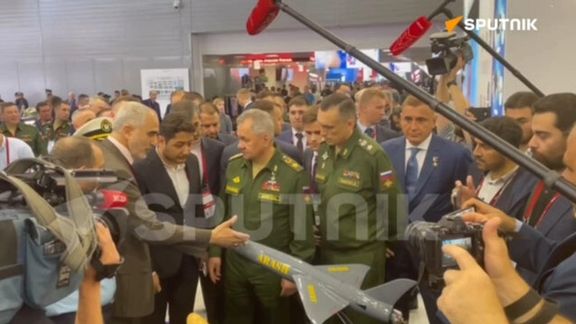
Russian Defense Minister Army General Sergey Shoigu visited the military stands of several countries, including Iran’s at the Army-2023 International Military-Technical Forum
The ongoing Army-2023 International Military-Technical Forum held at the Patriot Congress and Exhibition Center outside Moscow, the Alabino shooting range, and the Kubinka airfield, gathers military enterprises to discuss development within the Russian Armed Forces.
At the Iranian stand, Shoigu showed particular interest in a range of unmanned aerial vehicles (UAVs) and electronic warfare systems. Among the showcased items were the Arash, Ababil-5, and Karrar UAVs, alongside the Hunter-2 electronic warfare system.
Iran’s delegation, led by Deputy Chief of Staff of Iran's Armed Forces, Aziz Nasirzadeh, has been a consistent presence at such events.
Iran has previously denied allegations of sending armed drones to Russia during the conflict that ensued after Moscow's invasion of Ukraine. The Iranian government stated that any such shipments, if they did occur, took place before the war.
Nevertheless, Russia's utilization of Iranian-made drones for attacks on Ukrainian infrastructure and civilian targets has drawn international criticism. Western powers have raised concerns over Iran's involvement in arming Russia with these drones, along with the possibility of supplying additional weaponry and ammunition.

Questions abound following the deadly shooting Sunday at a religious shrine in southern Iran, with the government announcing arrests as people widely speculate.
Iran’s judiciary said on Monday that eight suspects have been detained over the attack on Shahcheragh, a funerary monument and mosque in Shiraz that was the site of a similar attack less than a year ago.
Saying that all detained suspects were foreign nationals, the judiciary's Mizan news agency said the main perpetrator was identified as Rahmatullah Nowruzov, a citizen of Tajikistan, while the nationalities of the other suspects remained unknown. Tasnim, a media outlet affiliated with the Revolutionary Guard said 10 foreigners were arrested in relation to the attack.
According to NourNews, a media outlet close to Iran's Supreme Council of National Security, one person was killed and ten people were wounded when the shooter opened fire at the premises of the shrine before being arrested.
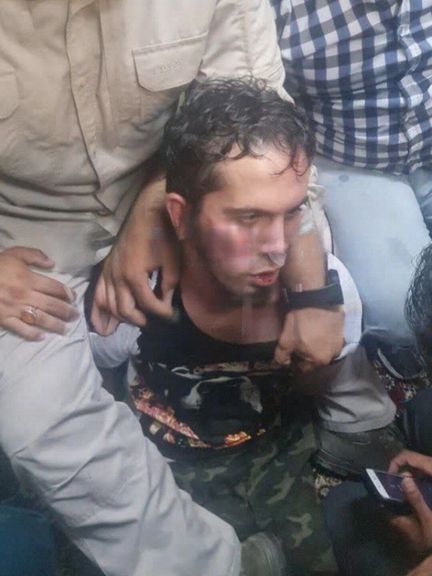
The regime’s state broadcaster announced that the Islamic State group (ISIS) has claimed responsibility for the attack, but so far there is no evidence of any statement by the terror group.
In last year's attack when 15 people were killed at Shahcheragh, the Islamic State claimed responsibility. The militant group, which has claimed other attacks in Iran -- including the deadly twin bombings in 2017 that targeted Iran's parliament and the tomb of the Islamic Republic's founder Ruhollah Khomeini – has played the role of boogeyman in regime’s narratives of regional developments to justify its military presence and support of other foreign militias, and strict security atmosphere inside the country.
A large number of regime officials, including parliament speaker Mohammad-Bagher Ghalibaf, Foreign Minister Hossein Amir-Abdollahian and President Ebrahim Raisi as well as several lawmakers and military commanders, vowed revenge against those behind the attack.
In a vague remark, Foreign Ministry spokesman Nasser Kanaani said, “The attack on worshippers is a heinous act of vengeance in response to the significant blows that Iran dealt on terrorists in the battlefields.” The governor of Fars province, Mohammad Hadi Imaniyeh, attributed the motive of the assailant to "vengeance" for the execution of two individuals involved in last year's attack.
In July, Iran publicly hanged two Afghan men who were accused of "providing weapons, procurements, logistics, and guidance of the main perpetrator", which bears uncanny resemblance to the Sunday shooting. The lone gunman, armed with an assault rifle, entered the shrine last October and opened fire, and was subsequently shot and later died in hospital. He was also identified as a Tajikistan citizen. The October attack coincided with anti-regime protests in Iran. This prompted speculation and accusations that the government orchestrated the incident as a diversion from the protests and as a pretext for further crackdown.
Within the Iranian social media sphere, opinions diverge on how to respond to the attack, with some holding the regime accountable for either incompetence or possible involvement, while others echo the regime's stance in condemning the extremists.
A large number of people criticize the regime for focusing its forces and surveillance methods for cracking down on women who refuse to wear the hijab, rather than real criminals. Additionally, some speculate that this attack was orchestrated to divert public attention away from the ongoing political debate regarding the enforcement of new hijab laws, currently undergoing final deliberations in parliament.
In the lead-up to the anniversary of last year's nationwide anti-regime protests in September, Iranian authorities have heightened security measures, resorting to intimidation and threats in an attempt to prevent public demonstrations. Some believe that the attack on Shahcheragh was orchestrated to provide a pretext for tighter security measures.
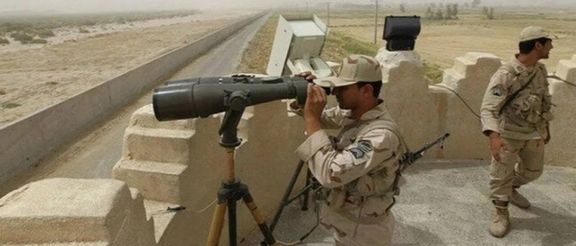
An aerial photo circulating on social media has led to extensive criticism of the government for “conceding” thousands of hectares of Iranian land to the Taliban.
The photo shows a 130 km long security wall built by Iran at some distance from the border demarcation line with Afghanistan which is along the Hirmand (Helmand) River.

“Mistake in building the wall in Zabol border area is real ... The Taliban have seized the lands and claim the border corresponds to the wall. Thousands of hectares of Iranian soil is now in the hands of the Taliban,” Turkey-based dissident Iranian journalist Masoud Kazemi wrote in an X post Saturday.
Some opposition social media users hold the Revolutionary Guards (IRGC) responsible for the situation by building the wall and “handing over” the lands beyond it to the Taliban.
The wall that has cut farmers’ access to thousands of hectares of agricultural land that falls between it and the official border was built in early 2000s to inhibit drug-trafficking and illegal immigration in the northern parts of Sistan and Baluchestan Province.
It appears that before the Taliban seized power in Afghanistan there were no major problems regarding the Iranian land beyond the wall.
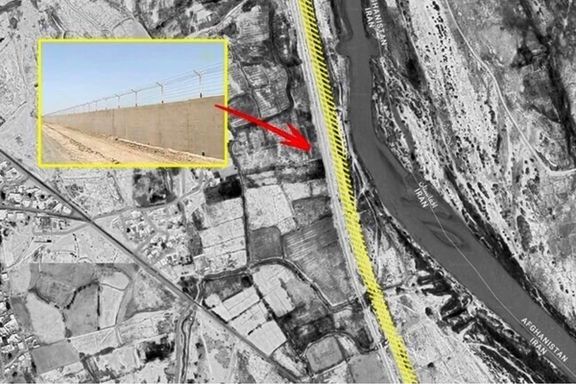
The Taliban act as though the border between the two countries corresponds to the wall and have on many occasions forcefully expelled the farmers from their lands and even clashed with Iranian border guards for what they say is illegal entry into Afghan soil.
In May a clash between Iranian border guards and the Taliban left at least two Iranians and one Taliban soldier dead. According to a report by Iranian reformist daily newspaper Ham-Mihan, since 2021 around 50 Iranians have been killed in border skirmishes with the Taliban.
Bloomberg reported last week that since May, the Taliban has deployed hundreds of suicide bombers to Afghanistan's border with Iran amid a major water dispute giving rise to concerns of a full-blown conflict. The Islamic Republic of Iran has also been building up its military presence in the area.
The halt in the flow of waters of Helmand River from Afghanistan has seriously affected the lives of hundreds of thousands in the southeastern province of Sistan and Baluchestan. Wetlands in Sistan have largely turned into salt flats, the once rich wildlife has disappeared, and many local villages abandoned.
In a commentary Saturday, the IRGC-linked Javan newspaper mildly criticized the Taliban for its human rights record, problems they have caused in their relations with their neighbors including Iran over water rights while praising them for expelling the United States, creating “a relatively stable government”, inhibiting power struggles inside the group, and moving towards economic stability and fighting against corruption.
The commentary also praised the Taliban for their military “achievements” against the opposition in Panjshir and other northern areas as well as against the Islamic State (Da’ish) in major cities including Kabul, Mazar-e Sharif, Herat and Jalal Abad.
Earlier this week, the IRGC-linked Fars news agency made an unprecedentedly harsh criticism of Iran’s Foreign Minister Hossein Amir-Abdollahian for what was perceived as an anti-Taliban stance expressed in a post on X (former Twitter).
“It is very surprising that despite several meetings with Taliban officials and hosting them, the minister of foreign affairs is unaware of the sensitivities of these matters and the costs that such statements may impose on the government and people of Iran,” Fars wrote.
Fars also claimed on Thursday that according to sources close to the Taliban negotiating team in Doha, the US Special Representative Thomas West has repeatedly demanded that the Taliban act as a destabilizing force against the Islamic Republic of Iran in return for the release of part of Afghanistan’s blocked assets. Allegedly, the Taliban turned down the demand.
Former Iranian diplomat Mohsen Aminzadeh in an interview with reformist Ham-Mihan newspaper this week said that between 1998 and 2005, during reformist Mohammad Khatami’s presidency, IRGC’s Quds Force and the foreign ministry worked in harmony regarding Afghanistan with the diplomatic apparatus taking the lead. It was during this time that the IRGC even cooperated with the United States in the war against the Taliban.
From 2005, when hardliner Mahmoud Ahmadinejad took over the government, the Quds Force completely sidelined the foreign ministry, a trend that continued during Hassan Rouhani’s presidency, and the Islamic Republic increased its collaboration with the Taliban against the United States, Aminzadeh said.
According to the Jerusalem Post, the attacks, orchestrated by Iran's Islamic Revolutionary Guard Corps, were aimed at thwarting Moshe's efforts to enhance relations between the two nations and elevate Israel's standing in the region.
"I see that their goal was not only to kill me physically but to kill the idea as well," Moshe stated, emphasizing the assailants' broader objectives.
Moshe, a Georgian Jew who immigrated to Israel in the 1970s and later returned to Georgia as the Jewish Agency's first representative to the Soviet Union, has been instrumental in bridging connections between Israel and former Soviet republics. His organization, Beit Israel (Israeli House), operates in 18 countries, facilitating cultural and diplomatic exchange.
The failed assassination attempts took place outside Beit Israel's office on Tbilisi's main street and were thwarted by intervention by Georgian security forces. Investigative findings indicated that the attackers intended to stage a gruesome spectacle at the entrance, by daubing Moshe's blood on the Israeli flag.
Despite the plots, Moshe remains dedicated to his mission. "The attempt of the murderers did not succeed," he said.
Geopolitical experts speculate that Iran views the South Caucasus, comprising Georgia, Armenia, and Azerbaijan, as strategically significant due to its proximity to the country. Iran is the sole Middle Eastern nation with diplomatic presence in all South Caucasus states. Iran's interests have drawn concern, as evidenced by its alleged involvement in attacks against Israeli targets.
Mossad recently disclosed additional information regarding a terrorist cell orchestrated by Iran with intentions to target Israeli businessmen in Cyprus.
Subsequently, Israel announced that its operatives within Iran effectively apprehended the individual believed to be responsible for the planned assault.